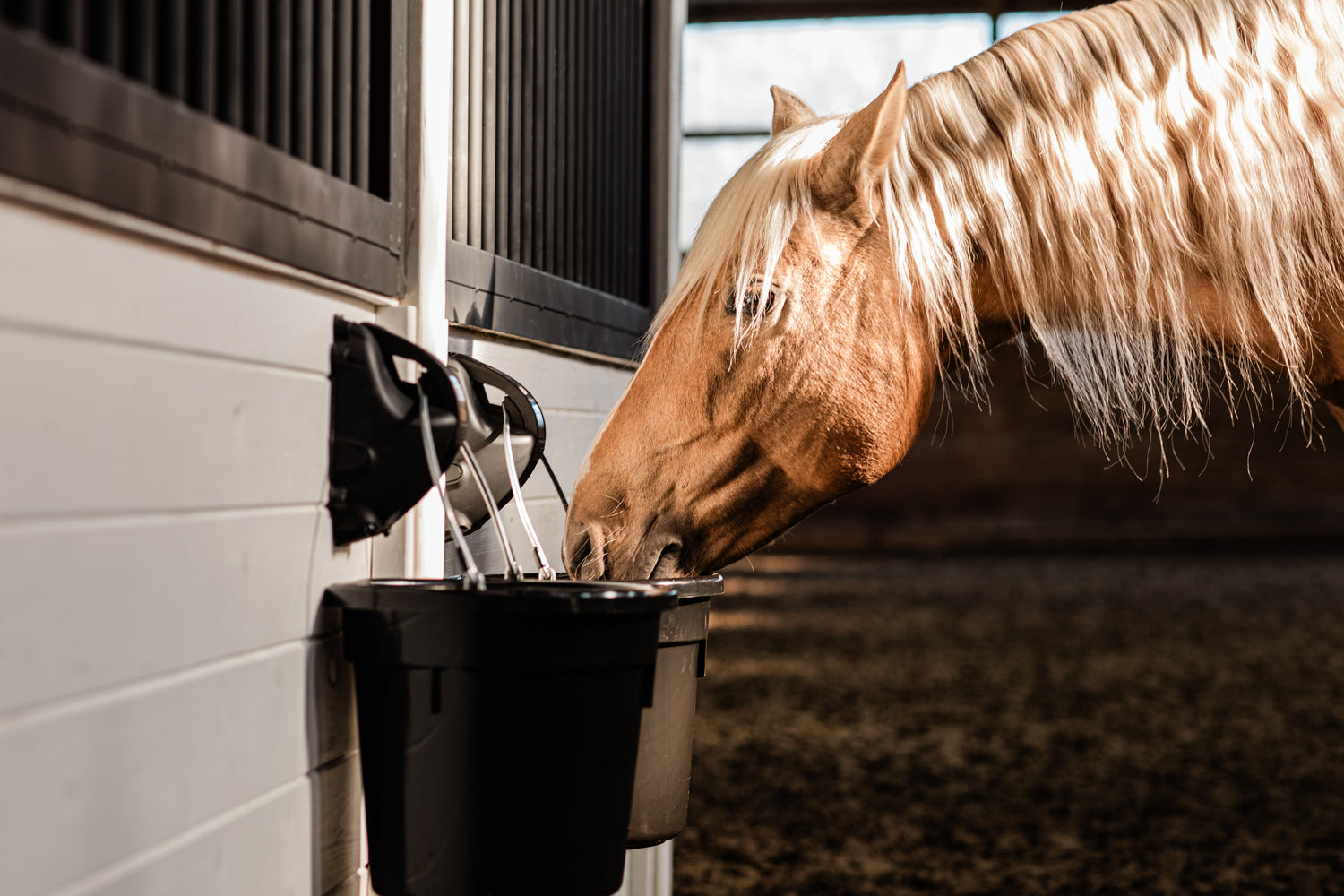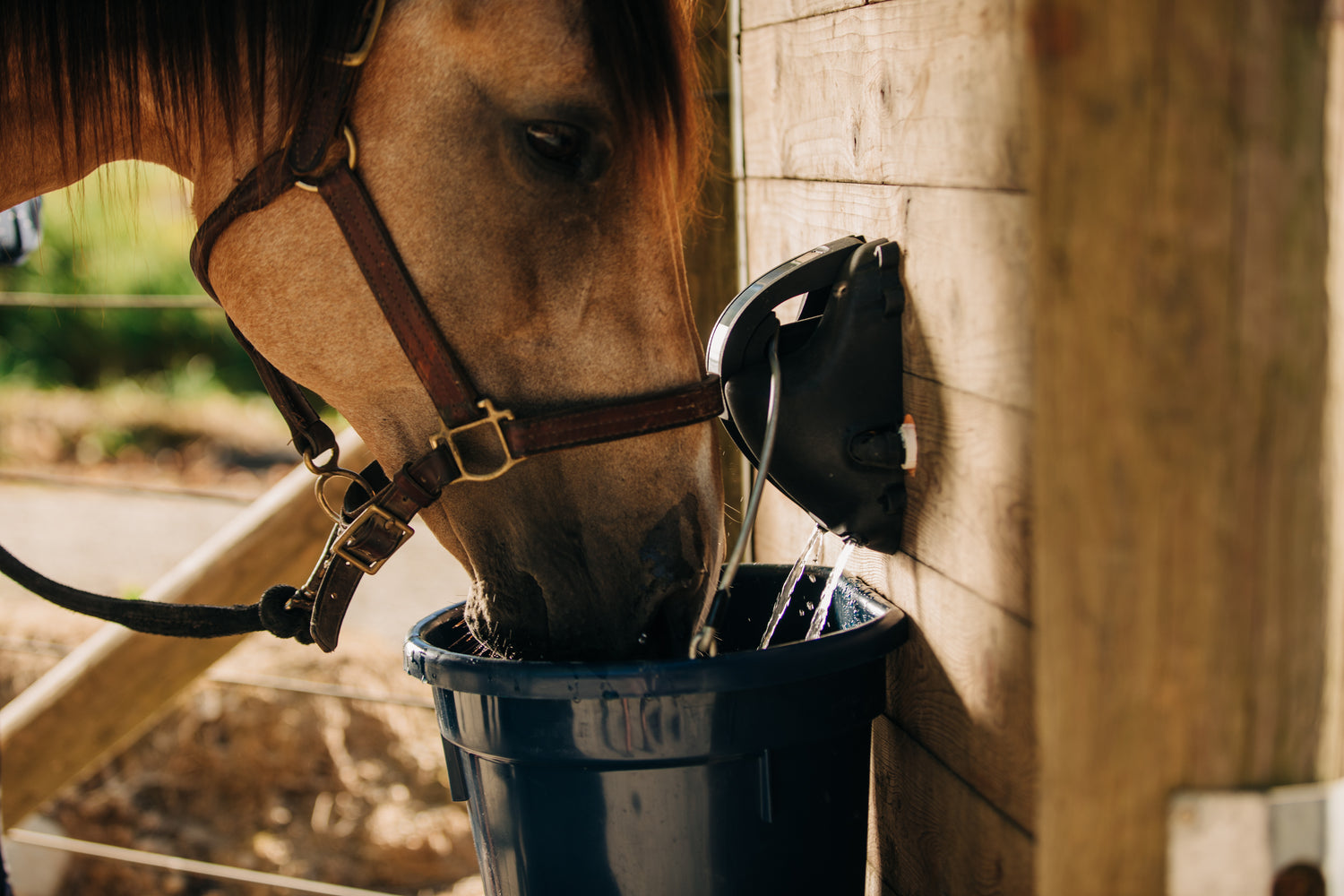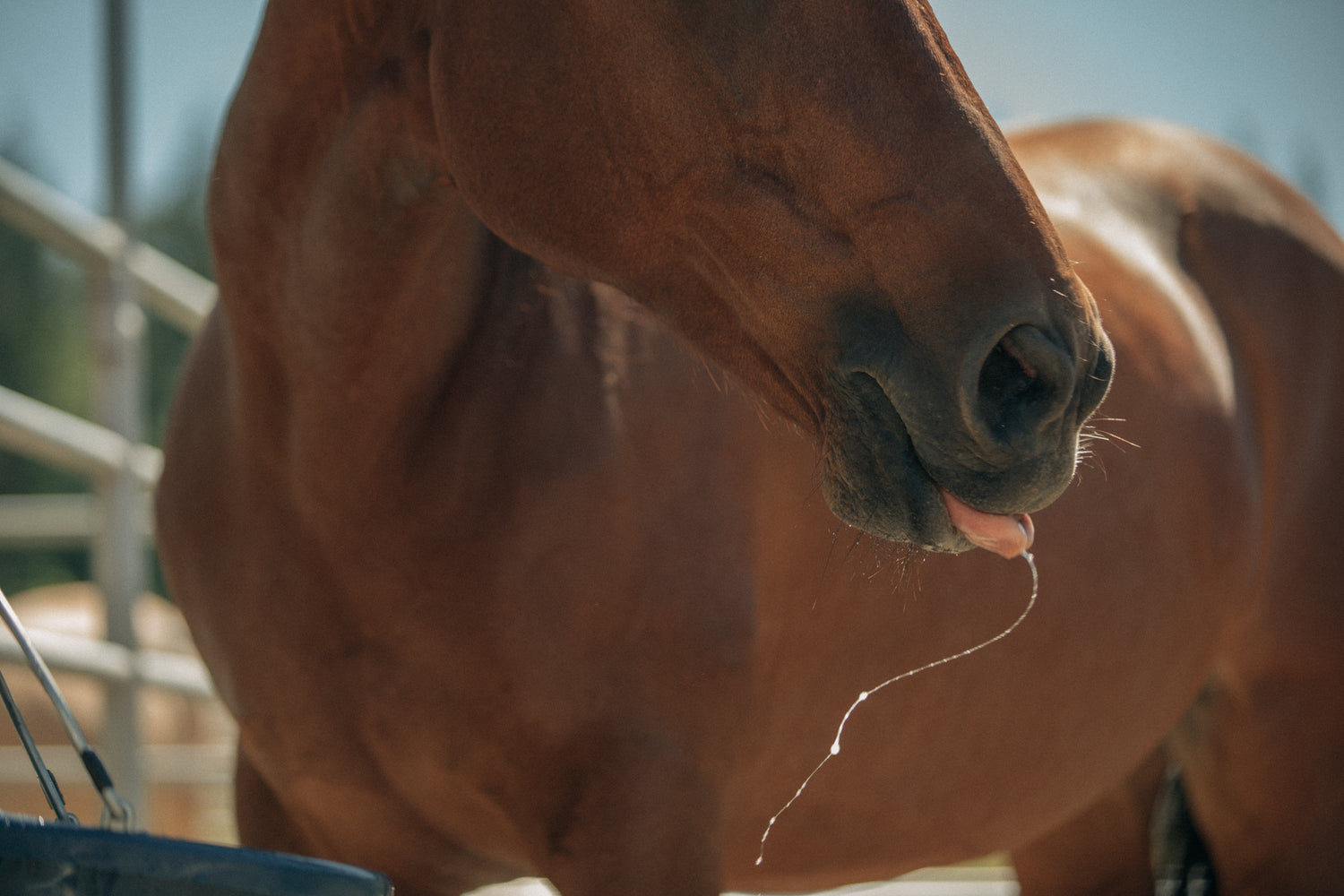
Just as in humans, a well-hydrated gut in horses plays a significant role in overall health, impacting everything from digestion to nutrient absorption and emotional well-being. Water is a critical component of your horse's diet, and understanding this crucial element can dramatically affect your horse's care, performance, and happiness.
Understanding Horse Hydration and Gut Health
Hydration is a fundamental aspect of horse health and is vital to almost every bodily function.
How horses regulate their hydration
Horses have a finely tuned internal system that maintains their fluid balance. As a horse drinks water, it is absorbed into their bloodstream, hydrating cells and facilitating critical bodily functions such as digestion, nutrient absorption, and temperature regulation.
A horse’s internal system is heavily influenced by the amount of water they consume directly and indirectly through their food.
The role of electrolytes in horse hydration
Electrolytes are essential minerals that carry an electric charge. These include sodium, potassium, and chloride. They are crucial in maintaining your horse’s fluid balance, nerve function, muscle contractions, and pH levels.
When horses sweat, they lose electrolytes, which must be replenished to maintain healthy bodily functions. A balanced diet usually provides enough electrolytes for regular activity.
However, horses that engage in heavy work or endurance activities may require additional electrolyte supplementation. Oral electrolyte supplementation is an effective strategy to prevent dehydration, support performance, and promote faster recovery.
What does dehydration do to a horse’s gut health?
When a horse's fluid loss is not offset by adequate water consumption, the animal becomes dehydrated.
As the body tries to reduce moisture losses during dehydration, water will be reabsorbed from the gut, which can decrease efficiency in the movement of the gut's contents. This could lead to colic. Colic (severe abdominal discomfort) can cause long-term damage to the horse's digestive system and, in serious cases, can be fatal.
Even mild dehydration at home may require administering water and electrolytes via a veterinarian's nasogastric tube.
However, horses cannot always tell us when they're thirsty. So, it is essential to be aware of the signs of dehydration. These can include:
- Dry mucous membranes in the mouth
- Decreased skin elasticity
- Lethargy
- Loss of appetite
- Sunken eyes
For more on dehydration, read Signs of Dehydration in Horses .
What are the three signs of a healthy, hydrated gut in a horse?
These three signs, observed together, provide a good indicator of gut health in horses.
However, it's important to remember that many factors, including diet, stress, and exercise, can influence gut health. Regular veterinary check-ups and proper management practices are essential to maintaining gut health and addressing any issues promptly.
Here are the three signs of a healthy gut:
Consistent, normal manure production
One of the most visible signs of a healthy gut in horses is the consistency and regularity of their manure.
Healthy horses typically produce well-formed, moist (but not too wet), and regular manure many times daily (it’s common for horses to create 50 pounds of manure and have 6-10 bowel movements a day). The consistency and appearance of manure can indicate the state of digestion and absorption in the gut.
Sudden changes in manure consistency, such as diarrhea or overly dry feces, can signal digestive upset or dehydration.
Good appetite and eating behavior
A healthy appetite is another sign of a well-functioning gut.
A well-hydrated horse ingests three pounds of water for every pound of dry matter consumed, aiding digestion and nutrient absorption. They maintain a consistent eating pattern and show no signs of discomfort (like colic symptoms) during or after eating.
Changes in appetite or eating behavior can indicate gut health issues, including dental problems, ulcers, or other gastrointestinal disturbances.
Healthy weight and condition
Maintaining a healthy weight and body condition reflects good gut health and proper nutrient absorption.
Horses with healthy guts efficiently absorb nutrients from their diets, which supports their energy needs, maintains their weight, and contributes to a shiny coat and overall good physical condition.
Horses should have a body condition score appropriate for their breed, age, and workload. A horse that is too thin or obese may suffer from nutritional imbalances or digestive tract problems.
Challenges in Maintaining Horse Hydration

Keeping a horse adequately hydrated can be a complex task for horse owners. From seasonal weather changes to the quality of water provided, several factors can influence a horse's water consumption.
Seasonal challenges and activity levels
One of the most significant challenges in maintaining proper hydration is seasonal change.
During the hotter months, horses require more water to compensate for the fluids lost through sweating. However, despite the common misconception, horses must also stay well-hydrated during colder months . In winter, the risk of dehydration increases due to reduced fluid consumption and increased dry feed intake (which can lead to impaction colic).
Read Optimizing Winter Water Intake and Using Heated Water Buckets for more on cold weather hydration.
Additionally, a horse's activity level significantly impacts its hydration needs. Horses in heavy work or endurance activities lose more fluids and electrolytes through sweat, requiring additional water and potentially electrolyte supplementation.
The importance of water quality
Water quality plays a crucial role in a horse's willingness to drink.
Taste and smell
Horses are sensitive to the taste and smell of their water, and they may refuse to drink if the water is stagnant, contaminated, or has an unfamiliar taste. This can pose a challenge when traveling with horses, as the water available at different locations may vary in taste.
Temperature
Moreover, the temperature of the water can also affect a horse's drinking habits. Horses generally prefer cool, but not icy, water. During winter, ensuring that water sources do not freeze over is another challenge horse owners must tackle.
Best Practices for Horse Hydration Management

Here are some effective practices to help horse owners manage their equine's hydration effectively.
Tips for ensuring your horse is well-hydrated
Provide access to clean water
One of the most fundamental ways to ensure your horse stays hydrated is to provide free-choice access to clean, quality water.
Regularly checking, scrubbing, and refilling water troughs and buckets can help maintain a clean drinking environment.
Monitor water intake
Monitoring your horse's fluid intake can alert you to sudden changes that could indicate health issues.
Remember, your horse needs to stay hydrated year-round, from hot summer days to cold winter nights.
Allow to drink freely
After exercise, allow your horse to drink freely to replace lost fluids.
However, if your horse is severely dehydrated, offer small but frequent amounts of water and be prepared to contact your veterinarian if the horse's condition does not improve.
Incorporating electrolytes into a horse's diet
A balanced diet usually provides enough electrolytes for normal activity, but horses involved in heavy work or endurance activities may require additional electrolyte supplementation.
It's important to note that electrolytes should be added to the diet appropriately.
Over-supplementation can cause harm. Therefore, it's advisable to consult a vet or equine nutritionist to determine the correct amount and type of electrolyte supplement your horse may need.
The role of feed and forage in hydration
Wet feed can aid in keeping your horse hydrated, providing an additional water source. On the other hand, a diet high in dry matter can increase the risk of dehydration and impaction colic.
Forage, particularly fresh pasture, can also contribute to a horse's hydration status as it contains a high percentage of water. However, soaking hay before feeding can help increase your horse's water intake when fresh forage is unavailable or if fresh grass is contraindicated for your horse’s metabolic health.
Innovations in Horse Hydration
Equine care has seen significant advancements recently, particularly in horse hydration. One such innovation is the advancement of automatic horse waterers .
Automatic horse waterers solve many hydration challenges that horse owners face. Here are just a few of the benefits:
- Provide a consistent supply of fresh and clean water
- Reduce the labor involved in manually filling water buckets or troughs
- Track water consumption
There are many different horse watering systems on the market, but the best automatic horse waterer to provide your horse with a hydrated gut is the Cascada Automatic Horse Waterer .
Cascada’s Automatic Horse Waterer: A Game-Changing Hydration Solution

Cascada Waterer stands out for its unique features that support horse health and hydration.
As the first Internet of Things (IoT) horse watering system , Cascada’s innovative product goes beyond simply providing water. Cascada's automatic waterer uses advanced technology to track and learn your horses' drinking habits.
Cascada is revolutionizing the way horses are hydrated, and here’s how:
- Real-time water consumption data: Cascada's system provides immediate insights into how much water your horse drinks, enabling you to track daily intake.
- Early detection of potential health issues: Changes in drinking patterns can be early signs of health problems such as colic, dental issues, or metabolic disorders. Early detection allows for prompt veterinary care, potentially saving lives.
- Fresh water on demand: The Cascada ensures that water is always fresh and clean, encouraging horses to drink more and stay hydrated.
- Safe and clean water supply: By reducing the risk of water contamination and stagnation, the system helps prevent the spread of waterborne diseases.
- Reduced labor and maintenance: Automatic refilling and cleaning reduce your workload, ensuring your horse can access fresh water without needing constant manual checks.
Cascada's Automatic Horse Waterer is more than a convenience – it's a transformative tool for equine health and management by ensuring your horse has access to the best possible water supply but also empowers owners with data and insights to make informed decisions about your horse’s health and well-being.
The Key to Optimal Horse Hydration and Health
By understanding the science of horse hydration and implementing best practices, you can optimize your horse’s health at a cellular level and see significant results in their performance and well-being.





